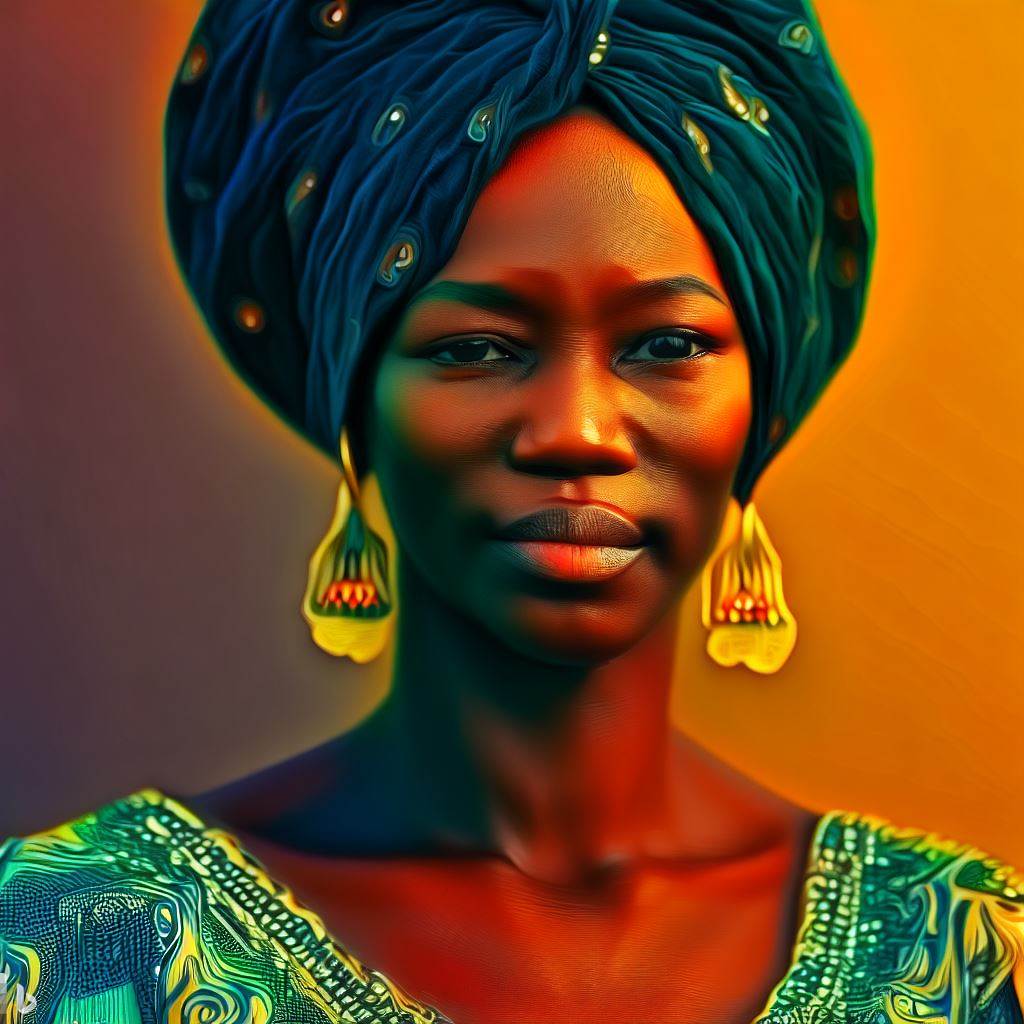Introduction
Briefly introduce the topic of scriptwriting for theatre and film in Nigeria
Scriptwriting for theatre and film in Nigeria is a dynamic field that has been pivotal in shaping the country’s cultural and artistic landscape.
It’s a creative journey where writers craft narratives that come to life on either the stage or the silver screen.
Explain the significance of comparing theatre and film scriptwriting in the Nigerian context
Comparing scriptwriting for theatre and film in Nigeria holds immense importance.
It not only showcases the diverse talents and creativity of Nigerian writers but also highlights the unique challenges and opportunities associated with each medium.
This comparison can provide valuable insights into the storytelling techniques, audience engagement, and cultural impact of scripts in both theatre and film, ultimately contributing to the growth and evolution of the Nigerian entertainment industry.
As Nigeria’s theatre and film scenes continue to flourish, understanding the differences and similarities in scriptwriting for these mediums is crucial for aspiring writers and enthusiasts alike.
Overview of Theatre Scriptwriting in Nigeria
History and Development of Theatre Scriptwriting in Nigeria
- Theatre scriptwriting in Nigeria has a rich history that dates back to the colonial era.
- In the early years, Nigerian theatre scripts were heavily influenced by European dramatic traditions.
- The emergence of the Nigerian independence movement in the 1960s led to a shift towards more indigenous themes and storytelling.
- Theatre scriptwriting in Nigeria has evolved alongside political and social movements, reflecting the country’s diverse cultural landscape.
- Current theatre scriptwriters in Nigeria are embracing a wide range of styles and genres.
Characteristics and Elements Specific to Nigerian Theatre Scripts
- Nigerian theatre scripts often incorporate elements of oral storytelling and folk traditions.
- The use of music, dance, and traditional costumes is prevalent in Nigerian theatre scripts.
- Nigerian theatre scripts tend to emphasize the communal experience of theatre, often engaging the audience directly.
- The scripts combine humor, satire, and social commentary to address relevant issues in Nigerian society.
- Many Nigerian theatre scripts explore themes of identity, post-colonialism, and the struggles of everyday life.
Prominent Nigerian Playwrights and their Works
- Wole Soyinka, Nigeria’s first Nobel laureate in Literature, is known for his plays such as “Death and the King’s Horseman” and “A Dance of the Forests.”
- Femi Osofisan is a prominent Nigerian playwright known for works like “Women of Owu” and “Morountodun.”
- Lola Shoneyin’s play “The Secret Lives of Baba Segi’s Wives” has gained international recognition.
- Ola Rotimi’s play “The Gods Are Not to Blame” is a classic Nigerian theatre piece.
- Inua Ellams’ “Barber Shop Chronicles” explores the connections between African men from different parts of the world.
Essentially, scriptwriting for theatre in Nigeria has a vibrant and diverse history, driven by the country’s political and social changes.
Nigerian theatre scripts combine traditional elements with contemporary themes and styles, resulting in unique and powerful storytelling experiences.
Prominent Nigerian playwrights like Wole Soyinka, Femi Osofisan, Lola Shoneyin, Ola Rotimi, and Inua Ellams have contributed significantly to the development of Nigerian theatre scriptwriting.
Nigerian theatre continues to evolve, reflecting the ever-changing Nigerian society and providing a platform for voices to be heard.
Read: Scriptwriting Contests to Kickstart Your Career in Nigeria
Overview of Film Scriptwriting in Nigeria
Rise of Nollywood and Evolution of Film Scriptwriting
Nigeria’s film industry, also known as Nollywood, has experienced a remarkable rise in recent years.
Starting in the late 1990s, Nollywood has become the second largest film industry globally, surpassing Hollywood in terms of the number of annual film productions.
This rapid growth has led to an evolution in film scriptwriting practices. Initially, Nollywood films were known for their low production values and quickly written scripts.
However, with the industry’s expansion, filmmakers have recognized the importance of well-crafted scripts as a crucial component for success.
Characteristics and Elements of Nigerian Film Scripts
Nigerian film scripts exhibit distinct characteristics that set them apart from scripts in other countries. The first notable element is the reliance on dialogue to drive the story forward.
Nigerian audiences value dialogue-heavy scripts as they feel it enhances the story’s authenticity and relatability.
Another characteristic of Nigerian film scripts is their focus on social issues. Many Nigerian filmmakers use their stories as a means to shed light on societal problems, such as corruption, poverty, and cultural practices.
This unique approach adds depth and relevance to the narratives, making them more relatable to local audiences.
Furthermore, humor plays a significant role in Nigerian film scripts. The infusion of comedy provides a form of escapism, allowing viewers to momentarily forget about their everyday challenges.
This comedic element also contributes to the popularity of Nigerian films, as it appeals to a wide range of audiences.
Successful Nigerian Filmmakers and Their Works
Several Nigerian filmmakers have gained international recognition for their exceptional contributions to the industry.
One such filmmaker is Kunle Afolayan, known for his critically acclaimed films like “The Figurine” and “October 1.”
Afolayan’s works often tackle complex social issues while maintaining a high standard of storytelling and production quality.
Niyi Akinmolayan is another filmmaker who has made a significant impact in Nigeria.
His film “The Arbitration” garnered widespread acclaim for its nuanced exploration of gender dynamics and workplace politics.
Akinmolayan’s ability to tackle serious subjects while delivering an engaging narrative has solidified his position as a leading filmmaker.
Additionally, Kemi Adetiba’s directorial debut, “The Wedding Party,” became the highest-grossing Nigerian film at the time.
This romantic comedy showcased Adetiba’s skill in creating entertaining and commercially successful films that resonate with both local and international audiences.
In short, the rise of Nollywood has revolutionized film scriptwriting in Nigeria. The industry’s growth has elevated the importance of well-crafted scripts, resulting in more nuanced storytelling.
Nigerian film scripts stand out due to their reliance on dialogue, focus on social issues, and infusion of comedy.
The success of filmmakers like Kunle Afolayan, Niyi Akinmolayan, and Kemi Adetiba exemplifies the talent and creativity present in Nigerian cinema.
Read: Cultural Influence in Nigerian Scriptwriting Practices
Major Differences between Theatre and Film Scriptwriting in Nigeria
Impact of performance space and audience interaction on theatre scripts
- Theatre scripts must account for the limitations and possibilities of the live performance space.
- The layout and design of the stage affect the movement and blocking of actors.
- Theatre scripts may include stage directions that guide actors’ interactions with the audience.
- Audience reactions and participation can influence the pacing and delivery of dialogue in theatre scripts.
- Theatre scripts often rely on the energy and engagement of the live audience for a successful performance.
Visual nature and technical considerations of film scripts:
- Film scripts rely heavily on visual storytelling and the use of camera angles, shots, and lighting.
- Detailed descriptions of settings, props, and costumes are essential in film scripts.
- Film scripts must consider practical and technical aspects such as special effects and location shooting.
- Cinematic techniques like editing, sound design, and music play a significant role in film scripts.
- Visual storytelling in film scripts allows for creative interpretation and manipulation of the narrative.
Differences in storytelling techniques and narrative structure between theatre and film scripts in Nigeria
- Theatre scripts often rely on dialogue and live action to convey the story, while film scripts can utilize visual storytelling.
- Theatre scripts tend to have longer scenes and fewer cuts or transitions compared to film scripts.
- Film scripts may use non-linear narratives, flashbacks, or multiple storylines more frequently than theatre scripts.
- Theatre scripts prioritize character development and emotional depth through dialogue and physical performances.
- Film scripts have the advantage of visual editing and close-ups to convey emotions and nuances.
In a nutshell, theatre and film scriptwriting in Nigeria have significant differences in terms of performance space, audience interaction, visual nature, technical considerations, storytelling techniques, and narrative structure.
Theatre scripts require careful consideration of the live performance space and audience engagement, while film scripts focus on visual storytelling and technical aspects.
Moreover, storytelling techniques differ as theatre scripts emphasize dialogue and live action, while film scripts utilize visual techniques and editing.
Understanding and appreciating these differences is crucial for scriptwriters in both theatre and film industries in Nigeria.
Read: Nollywood vs Hollywood: A Scriptwriter’s Perspective

Challenges Faced by Nigerian Playwrights and Screenwriters
Limitations and Constraints Faced by Theatre Scriptwriters in Nigeria
- Limited access to venues and performance spaces, hindering the production of plays.
- Lack of financial support and sponsorship for theatrical productions, making it difficult to bring scripts to life.
- Limited audiences and lack of appreciation for theatre, resulting in lower demand for scripts.
- Censorship and strict regulations from government bodies, limiting the artistic freedom of playwrights.
- Difficulty in attracting talented actors and skilled directors to collaborate on theatrical projects.
- Shortage of workshops and training opportunities for playwrights to enhance their skills and creativity.
Challenges Encountered by Film Scriptwriters in the Nigerian Film Industry
- High competition among scriptwriters due to the booming Nigerian film industry (Nollywood).
- Limited access to production companies and producers who have the resources to finance film projects.
- Piracy issues, with scripts being stolen or plagiarized, undermining the efforts and creativity of screenwriters.
- Pressure to conform to certain genres and formulas that have proven successful in Nollywood, restricting innovation.
- Lack of proper copyright protection and legal frameworks to safeguard the rights of scriptwriters.
- Difficulty in attracting talented actors and securing appropriate casting for film scripts.
Impact of Funding and Distribution on Theatre and Film Scriptwriting in Nigeria
- Insufficient funding and investment in the theatre industry result in limited opportunities for scriptwriters.
- Lack of funding for professional productions affects the quality and creativity of scripts being produced.
- Limited distribution channels for Nigerian plays and scripts restrict the reach and exposure of playwrights’ work.
- Inadequate funding for film projects hampers the production of high-quality scripts and limits the industry’s growth.
- Difficulty in securing distribution deals and getting films screened in cinemas reduces the commercial success of scripts.
- Insufficient support from government bodies and lack of incentives for scriptwriters contribute to the challenging environment.
Basically, Nigerian playwrights and screenwriters face numerous challenges in their creative endeavors. Theatre scriptwriters struggle with limitations in venue access, financial support, and censorship.
On the other hand, film scriptwriters encounter competition, piracy, and genre restrictions within the Nigerian film industry.
Additionally, both theatre and film scriptwriters suffer from a lack of funding, limited distribution channels, and difficulties in securing talented actors.
Addressing these challenges and providing better support, funding, and training opportunities can foster the growth and development of scriptwriting in Nigeria.
Read: DJ Education and Training Opportunities in Nigeria
Opportunities and Advancements in Nigerian Scriptwriting
Emergence of New Platforms and Opportunities for Theatre Scriptwriters in Nigeria
- The rise of digital streaming platforms has provided theatre scriptwriters in Nigeria with new avenues for showcasing their work.
- Platforms like YouTube and Vimeo allow scriptwriters to create and upload their plays, reaching a wider audience beyond traditional theatre settings.
- The accessibility of online platforms has opened up opportunities for theatre scriptwriters to gain recognition and even attract international attention.
- Online platforms also enable scriptwriters to experiment with different genres and formats, exploring innovative ways to engage their audience.
- Additionally, social media platforms like Twitter and Instagram have become popular spaces for micro-dramas and script excerpts, giving scriptwriters a chance to showcase their talent and build a following.
Growth of Alternative Film Distribution Channels and Opportunities for Nigerian Filmmakers
- Nigerian filmmakers now have access to various alternative distribution channels beyond traditional cinema releases.
- The emergence of video-on-demand platforms such as Netflix, Amazon Prime, and iROKOtv has created new avenues for Nigerian films to reach a global audience.
- These platforms offer Nigerian filmmakers the opportunity to showcase their work alongside international productions, increasing visibility and potential for financial success.
- Furthermore, the popularity of film festivals both locally and internationally provides Nigerian filmmakers with platforms to showcase their films and network with industry professionals.
- With the growth of online platforms and alternative distribution channels, Nigerian filmmakers can explore diverse storytelling techniques and themes, breaking away from traditional narratives.
Potential for Collaboration and Cross-Pollination between Theatre and Film Scriptwriters in Nigeria
- Theatre and film scriptwriters in Nigeria have the potential to collaborate and learn from each other’s storytelling techniques.
- Theatre scriptwriters can adapt their plays into screenplays, tapping into the wider reach and visual possibilities of film.
- On the other hand, film scriptwriters can draw inspiration from the rich theatrical traditions in Nigeria, incorporating elements of live performance into their scripts.
- Collaboration between theatre and film scriptwriters can lead to innovative and hybrid forms of storytelling that attract diverse audiences.
- By sharing experiences and knowledge, theatre and film scriptwriters can strengthen the Nigerian scriptwriting industry as a whole.
In essence, the Nigerian scriptwriting industry is experiencing a wave of opportunities and advancements.
Theatre scriptwriters now have access to new platforms, where they can showcase their work to a wider audience and attract international attention.
Similarly, alternative film distribution channels have provided Nigerian filmmakers with the means to reach a global audience and explore diverse storytelling techniques.
Furthermore, collaboration and cross-pollination between theatre and film scriptwriters can lead to innovative forms of storytelling that attract diverse audiences.
As the Nigerian scriptwriting industry continues to evolve, these opportunities and advancements contribute to the growth and recognition of Nigerian talent on a national and international scale.
Conclusion
This blog post explored the key differences between scriptwriting for theatre and film in Nigeria.
It is important for aspiring scriptwriters to understand these similarities and differences in order to effectively create content for both mediums.
To sum it up, I encourage aspiring scriptwriters in Nigeria to embrace the unique opportunities and challenges presented by both theatre and film scriptwriting.
By doing so, they can contribute to the flourishing Nigerian entertainment industry. So, take the chance and let your creativity shine in both mediums!




